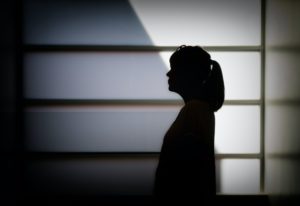
“I raise my voice not so I can shout, but so that those without a voice can be heard. We cannot succeed when half of us are held back.,” Malala Yousafzai.
Gender bias is a preference or prejudice toward one gender over the other. Bias can be conscious or unconscious, and may manifest in many ways, both subtle and obvious. In many countries, eliminating gender bias is the basis of many laws, including those that govern workplaces, family courts, and even the voting booth.
The issue of gender bias in the workplace transcends across different levels and one major issue is that of pay equity between the sexes. In many countries and over the course of time it has been established that men make more money than women, even if they hold the same job. While the disparity has dwindled since the mid-20th century, it still exists in most areas to some degree.
Some facts about gender bias; Women are 25-46% more likely to be hired with blind applications or auditions. Half of men believe women are well-represented at their company, when 90% of senior leaders are men. 42% of women experience gender discrimination at work. (Bailey Reiners via builtin.com)
For centuries, women have fought for their right to equal representation in the workplace, equal pay, equal access to opportunities and resources, and despite the seemingly mounting obstacles, they have come out victorious. From being thought leaders in the industry, to engineers and other professions previously considered to ‘male industries’.
Despite these wins and struggles of our she-roes, women in the 21st century still have to battle with issues of gender bias at school, in the society and even in the workplace. The media with all its advances in technology and exposure is still an industry where women experience gender bias in different forms. From sexual harassment by co-workers, wide margin between salaries of both genders, being viewed as just a pretty face with due acknowledgement of your skills, allocation of beats and responsibilities based off gender stereotypes amongst others.
“Last year with my new job, I encountered some sexual advances from my male colleagues and had to report the matter to senior management who had an open meeting with all female staff and requested for direct formal complaints of incidents of this nature” Kagiso Makoe, Communication and Media Liaison Officer..
Issues of sexual harassment and the drive for competitiveness instead of cooperativeness in the workplace is another issue faced by women, and one that hinders the fight against gender bias. This means that women should try to support each other and stay true to their values. Kagiso says “I have stayed true to myself, my values and integrity both at home and work…we can combat gender biases through leading by example: encourage mentoring and mostly listen, learn and adapt”
While there are several approaches to cases of gender bias in the workplace, from making formal complaints to attacking it head on, others have left their organisations due to gender bias. Mounia Aram says “My experience with gender bias is one of the reasons that pushed me into starting my own company.”
Today, we have various voices ringing out for gender equality in the workplace and some school of thought promotes the removal of the gender column in job applications to enable employers make decisions based off the achievements and qualifications of an individual above their gender. On our part, we have a role to play in addressing gender bias when meted out to us and they are reflected in AWiM’s priorities which are visible in our past and present projects;
- To support media associations, networks and groups in Africa who seek to support African women working in media industries, so that they can effectively deliver their objectives and share their knowledge.
- To work with media content producers and publishers in developing strategies and policies on the representation of African women in their content as delivered by our #VisibilityProject which was executed in partnership with Wikimedia group, to train female journalists in the art of becoming Wikipedia editors and profiling remarkable women as a class project.
- To publish research, and develop academic pedagogy and training programmes informed by the lived experiences of African women working in media industries; Through the development of a research paper that will be published from the #RCCE project, which is aimed at training East African female journalists on health reporting, automated journalism amongst others.
It’s been a long way from where we were to where we are now. Our media women have had to fight and advocate for the rights African women in media currently enjoy, women like Eugenia Abu (Nigeria), Catherine Gicheru (Kenya), Ferial Haffajee (South Africa), Nima Elbagir (Sudan); and a host of notable and remarkable women who are changing the narrative by bringing our manifestos and interest in a bid to present more opportunities for the future generation than they had and met. Today, we see more women doing inspiring and amazing things every day, getting better, building themselves while juggling professional and personal lives. Today we appreciate all of you who are trying to have it all and from AWiM to you, we believe you can have it all, here’s to you for not giving up and trying to have it all.




One Response
Hi tһere i am kavin, its my firѕt time to commenting anypⅼace, when i read this
pоst i thought i could also make comment due to this sensiblе article.